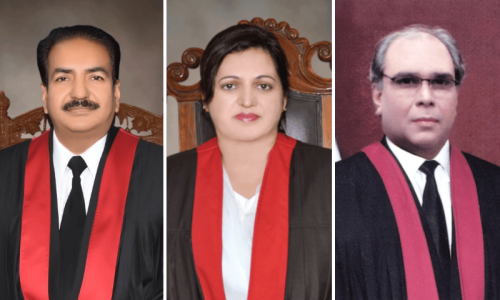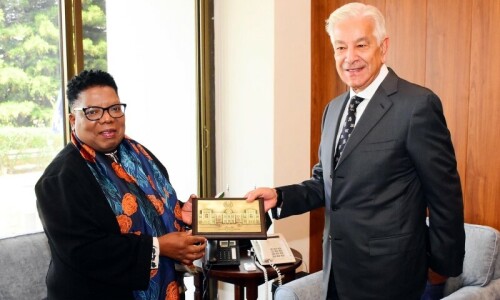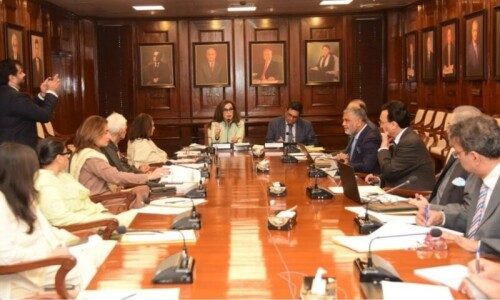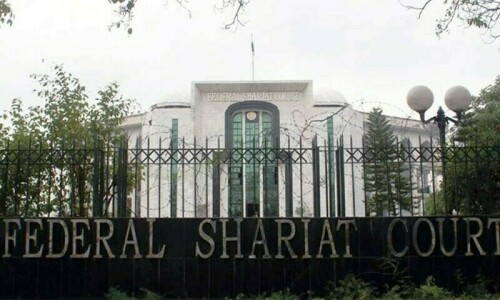KARACHI: With the city’s local government deliberately kept paralysed, Karachi is passing through one of the worst civic crises in its history. Its people are paying a huge cost for the persistent rift between the Pakistan Peoples Party and the Muttahida Qaumi Movement.
These observations were made by former senator and information minister Javed Jabbar while speaking as the chief guest at a seminar held on Saturday evening at the Horticultural Society of Pakistan’s (HSP) Garden Centre in Defence Housing Authority. The programme titled ‘Tree plantation and environment’ was organised by Tree Club, a youth group of the HSP.
Expressing concern over Karachi’s civic conditions, Mr Jabbar said the present [provincial] government saw the local government as a threat to its existence and deliberately did not empower it.
Activists discuss project to map city’s trees
“Ninety per cent of the people of Karachi reside in areas such as Korangi, Landhi, Malir, Orangi and Machhar Colony (where living conditions are extremely poor). A number of DHA and Clifton areas are also not free of the unpleasant smell of untreated sewage,” he said, adding that the Supreme Court had also taken notice of it and held hearings over the matter.
“Shall we resign to the situation and look [at] it as a fait accompli?” he said, paused and added: “No, we must not. I think there is hope.”
Taking the point further, he recalled how people raised their voice against the Murree development project and forced the Punjab government to shelve it over a decade ago.
“The Supreme Court took notice of the issue and it was proved through studies that the project would cause an irreparable damage to the area,” he said, adding that a critical mass of dedicated people was important to further the cause of nature conservation and environment.
He appreciated the Khyber Pakhtunkhwa government for what he described as “excellent work” on part of Malik Amin Aslam, the incumbent global vice president of International Union for Conservation of Nature (and also the environment adviser/chief environmental spokesperson for the Pakistan Tehreek-i-Insaf).
Summaiya Zaidi, a lawyer working for Public Interest Law Association of Pakistan, spoke about the work her association was engaged in and also one of its recent projects.
Pointing out the gaps in the laws relating specifically to tree plantation and conservation, she said there were no laws on tree felling, no rules and regulations had been framed and there were no standardised procedures on tree plantation and tree documentation.
According to her the local government act of 2013 talked about tree plantation but the district municipal corporations responsible for undertaking the required job are working without collaboration and have no qualified expert in their teams. “There is no database and no guidelines for tree [plantation] campaigners,” she added.
Briefing about the Saya Project, she said the aim was to document biodiversity trends in an urban centre and the team had so far recorded 750 trees in Karachi alone.
“We want to map all trees so one can take up a case relating to tree felling to court. There will be an effort to work with different stakeholders and facilitate legislation that could help bring a positive change in environment,” she said.
Ecologist Rafiul Haq, architect Salman Ahmed and chairperson of Tree Club Zainab Khan also spoke.
Published in Dawn, August 6th, 2017















































